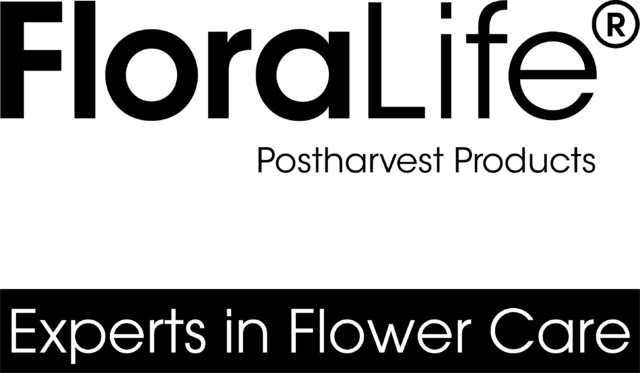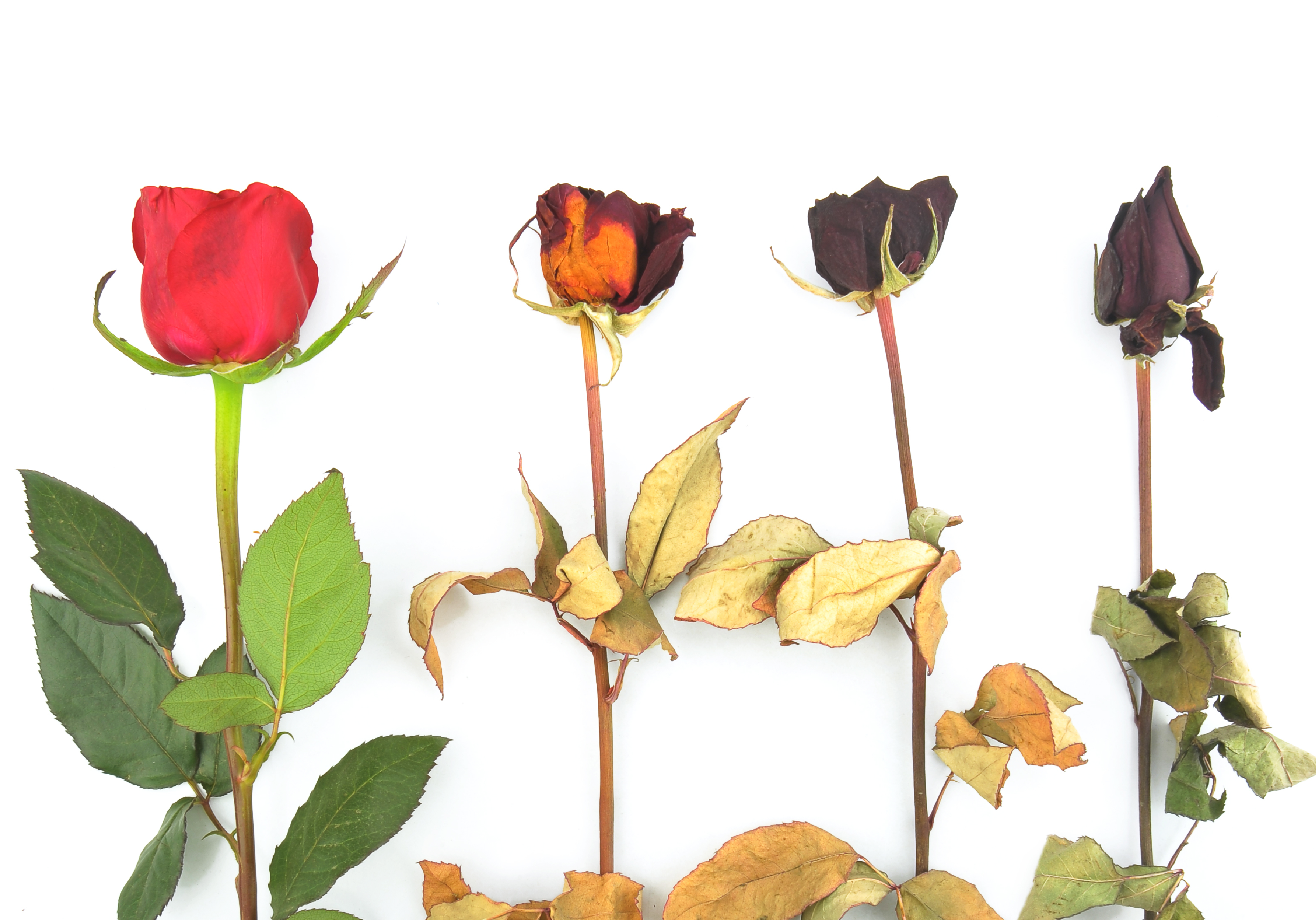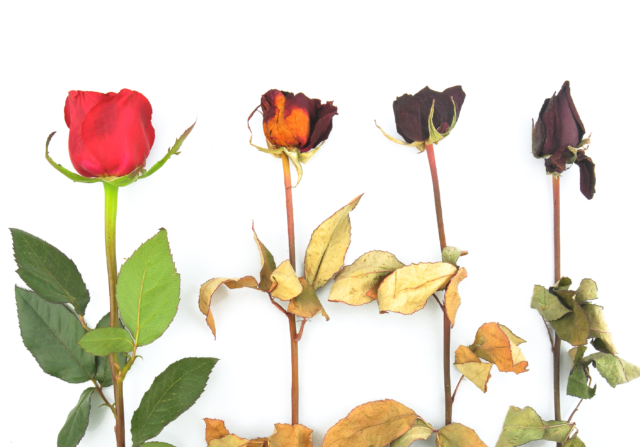Although a naturally occurring growth hormone, Ethylene can be detrimental to fresh cut flowers and plants. Odorless, colorless, and in gaseous form, Ethylene though always present at some levels in the atmosphere is difficult to detect without extensive equipment for testing. All plants produce Ethylene and can sense it, some varieties or crops have a higher sensitivity to Ethylene exposure than others. Unfortunately, the effects of Ethylene and the damage it causes are often not apparent until the product is either out of the cold chain, reached the point of sale, or in the consumer's home.
Effects of Ethylene on Flowers
The negative effects of Ethylene on flowers include:
- Accelerated life cycle
- Less resistant to stress
- Develop undesirable characteristics:
- Bent Neck
- Abnormal Opening
- Petal Wilting
- Petal Shattering
- Discoloration of Petals
- Popping of the flowers
- Shedding and/or yellow of foliage
- Reduced Value (Flower development, color, consistency)
Flowers will begin producing Ethylene as soon as they are cut from the plant as an instinctual response to complete their life cycle as nature intended. Additionally, flowers can be exposed to Ethylene from outside sources such as tobacco or industrial smoke, exhaust fumes, fruits, and micro-organisms. These types of Ethylene that contaminate the atmosphere are absorbed by the flower. Combined with the Ethylene the flower is already producing naturally, the flower’s life cycle is expedited exponentially.
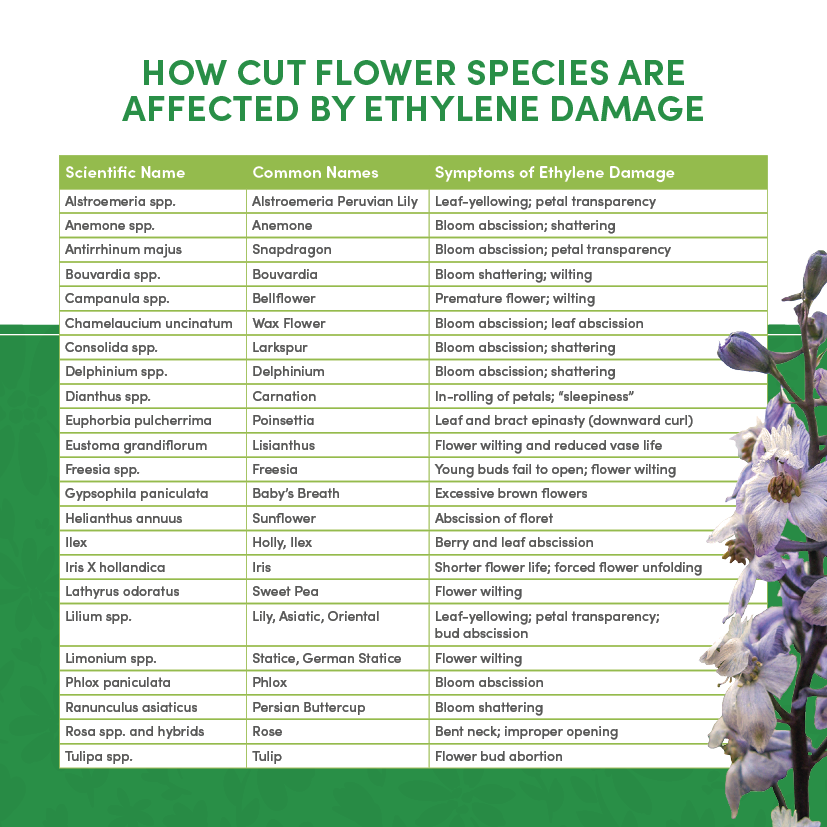
Effects of Ethylene on Business
Critical levels of Ethylene can be found throughout the entire distribution chain and the importance of understanding, monitoring, and managing the presence of ethylene during the transport, storage, and display phases is essential to your business.
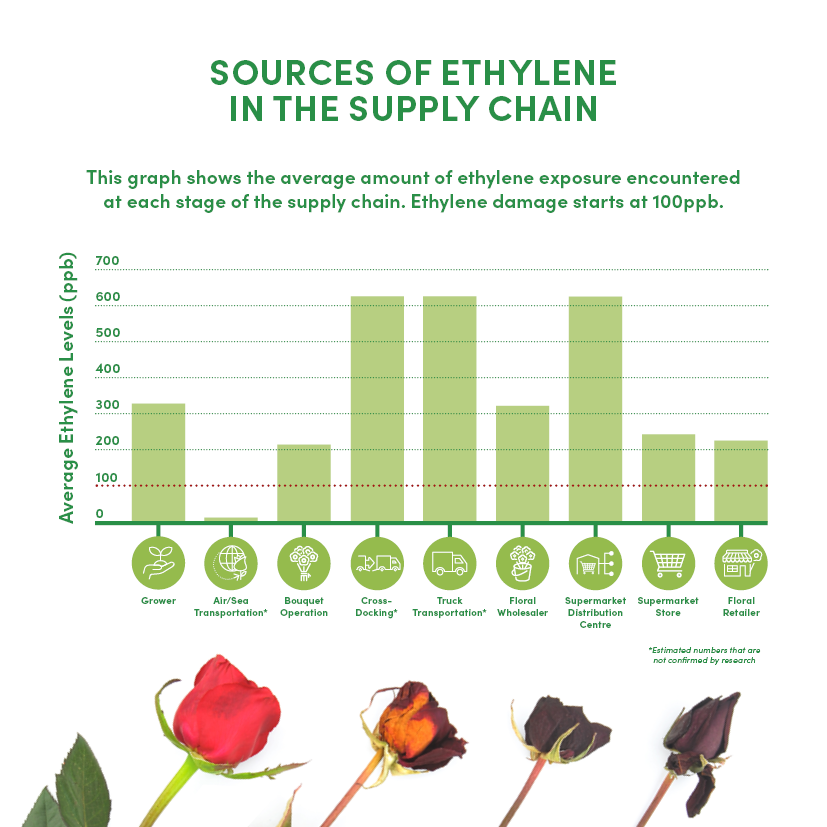
The negative effects on your business include:
- Product may not last during longer shipment periods such as sea freight
- Product may not reach the retailer in sellable condition
- Product may not last as long on display, shorter shelf life
- Product may not last as long in consumer's homes, shorter vase life
- May have a negative impact on sustainability
This all equates to loss; financial, unhappy customers, and most important your reputation for quality. Ultimately Ethylene damage will affect your business in a negative way.
Ethylene Defense
Developmental stages of flowers and plants once reached are irreversible but there are preventative measures available. Though we can't see it and it can be difficult to detect, Ethylene is always present.
Our Recommendations to minimize Ethylene:
- Treating flowers with an action inhibitor such as EthylBloc™ or FloraLife® EthylGuard. The molecules of the action ingredient bind to the receptors in the cells blocking the action of Ethylene production. The active chemical stays bound to flowers and plants even after unpacking and can stay bound to the cell receptor 10-14 days after treatment. These products should be used throughout the distribution chain to minimize the effects of Ethylene and safeguard product on its journey from farm to home.
- Maintain temperature control throughout the distribution chain.
- Maintain proper care and handling procedures daily.
Protect your flowers and your profits, treat your crop with EthylBloc™ or FloraLife® EthylGuard treatment.
- Increased vase life
- More resilient to external conditions
- Protected in supply chain
- Less shrink or waste
- Positive impact on sustainability
- Increased profit margin
